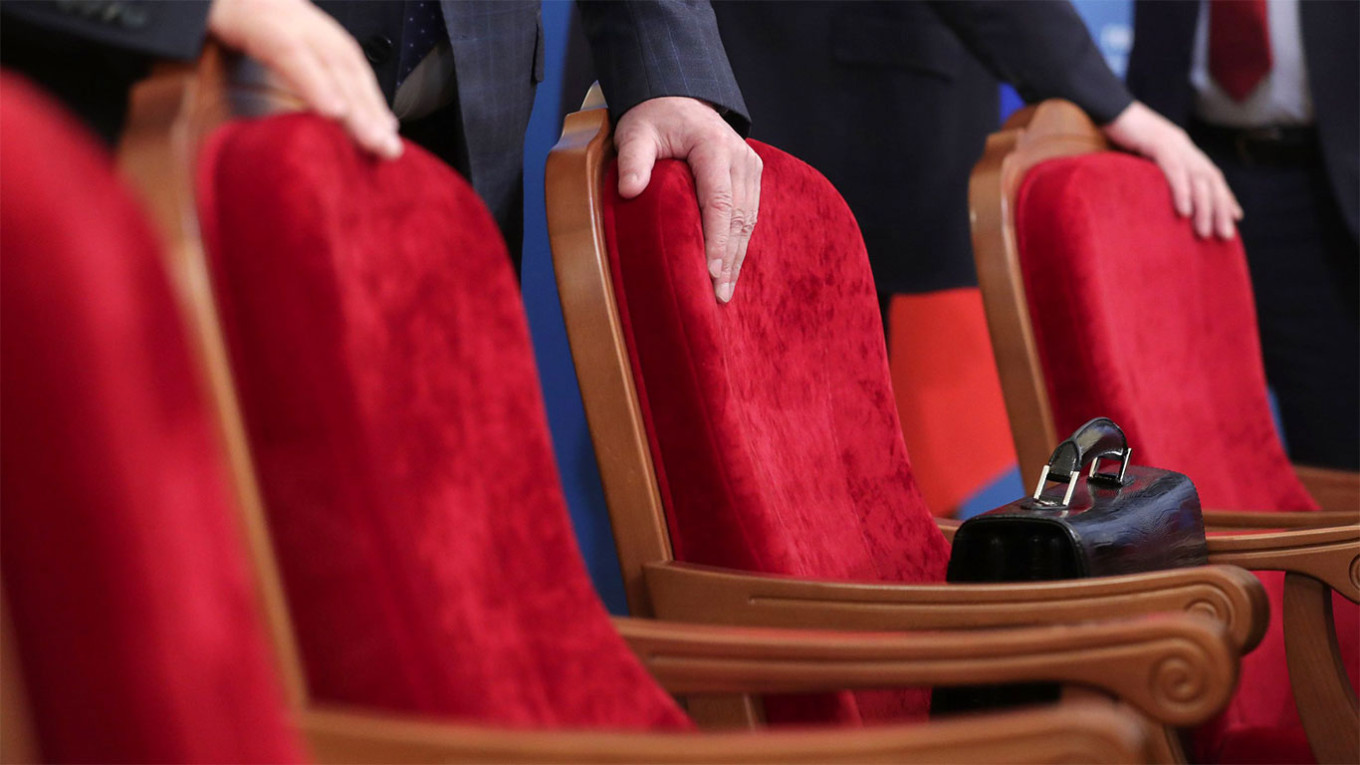ТАСС уполномочен заявить: TASS has been authorized to announce…
At some time in the future when I have about three years with nothing to do, I will research when and how politicians in various countries around the world began to use weasel words as a matter of course. You know what I mean: “We are deeply concerned.” “It is disturbing.” “We are taking this under consideration.” You can’t tell what they might do. Are they concerned enough to start moving troops? Are they disturbed enough to take some action? Are they considering making a statement or closing an embassy?
In Russia, there is a curious phenomenon. For the most part, politicians and spokespeople use the same kinds of universal bland verbs that conceal genuine opinions and actions — or sometimes mean the exact opposite of what they say. But sometimes they top off their bureaucratese with totally undiplomatic and crude language. It’s like in the middle of an imitation of Leonid Brezhnev at his most meandering they start channeling Nikita Khrushchev banging his shoe on the table at the UN.
To help you sort this out, here is a short crib sheet on official-speak.
В Кремле сообщили… (In the Kremlin it was announced). This is the newer version of the old Soviet standby ТАСС уполномочен заявить (TASS has been authorized to announce). In both cases the agent of action is not cited, which always makes translation into English awkward. You end up turning the Kremlin walls into animate beings: В Кремле сообщили о постоянном внимании Путина к ценам (The Kremlin announced that Putin is constantly monitoring prices.) Sometimes the person who makes the announcement is identified in the sentence that follows: Песков заявил о постоянном обсуждении Путиным с правительством темы цен ([Kremlin spokesperson Dmitry] Peskov announced that Putin is in constant discussion with the Cabinet on the issues of prices).
Often you don’t know who announced something or who did the thing announced: В Кремле сообщили о напряженной круглосуточной работе по обеспечению безопасности регионов (The Kremlin announced that there is intense, around-the-clock work going on to ensure safety in the regions).
What в Кремле сообщили really means: Someone at some level in some ministry or organization did something or made a decision that is now being announced by someone in the Kremlin.
Затруднятся (to have difficulty) is an excellent verb to use to avoid answering a direct question. You make it sound like responsible behavior — no one wants you to guess, right? Well, judge for yourselves: Губернатор затрудняется с ответом на вопрос, что именно имеют в виду чиновники, когда говорят, что резкого скачка цен не будет (The governor could not answer the question about what exactly officials mean when they say that there will not be a sharp jump in prices). Now is that a masterpiece of ambiguity and buck-passing, or what? The governor can’t answer for the officials so no one knows what “there will not be a sharp jump in prices” means. Maybe the price hikes will be gradual? Maybe they won’t go up at all? Who are the officials? What were their sources? No one knows. It’s a mystery.
Here's another great example: В Кремле затрудняются предположить, насколько результативными будут обсуждения на высшем уровне возможной альтернативы зерновой сделке (In the Kremlin they find it difficult to predict how productive the high-level discussions on a possible alternative to the grain deal might be.) It’s a nice touch to throw возможный (possible) into the mix — muddies the waters even more.
What затрудняться really means: If you want an answer to your question, you might as well pull a card out of the Tarot deck.
Опровергнуть (to refute) is standard spokesperson-speak, used by companies as well as governments. Sometimes it gets the spokesperson in trouble, like here: Авиакомпания "Аэрофлот" опровергла информацию о том, что обращалась в правительство России за господдержкой (Aeroflot airlines refuted information that they asked the Russian government for state subsidies). You got it all wrong, the spokesperson said: Авиакомпания не обращалась в правительство с просьбой о господдержке (The airlines did not ask the government for state subsidies). And then he continued: Свое видение развития отрасли в текущей ситуации авиакомпания раскрывала в обращении в Ассоциацию эксплуатантов воздушного транспорта (The airlines clarified its understanding of the development of the field in current conditions in a communication addressed to the Russian Air Transport Operators Association). Now that’s impressive double-talk, isn’t it? If you dig down through all those words and clauses, it all comes down to “the airline clarified it’s need for state subsidies.”
What опровергнуть really means: Yes, we did whatever you are accusing us of but “no we did not” is the hill we will die on.
Пообещать (to promise) sounds positive, but in many cases it’s more of a threat, like here: Кадыров пообещал уволить чиновников, дети которых не знают чеченский язык (Kadyrov promised to fire officials whose children don’t know the Chechen language).
In other cases, it is a way to kick the can so far down the road that the magnetic poles will flip before the promising party gets to it. В Кремле пообещали до конца года одновременно провести “прямую линию” с Путиным и его пресс-конференцию (In the Kremlin they promised to hold the call-in show with Putin and his press conference together by the end of the year). Sounds good. But the reporter, clearly experienced in the matters of promises, continued: Когда именно — неясно. В прошлом году их отменили (Exactly when is not clear. Last year they were cancelled).
What пообещать really means: Promises, promises… we’ll never do it.
Отреагировать (to react) usually means to respond to an accusation, an unpleasant action, or anything that goes against the interests of the country, ministry, local government or company. Sometimes spokespeople take the high road: В Кремле отреагировали на возвращение Пугачевой. Песков: Любой законопослушный гражданин имеет право вернуться в Россию. (The Kremlin reacted to [pop star Alla] Pugacheva’s return to Russia. Peskov said that every law-abiding citizen has the right to return to Russia). Here the catch is, of course, the definition of законопослушный (law-abiding), but hey, that’s a minor issue. The important thing is that the Russian president’s spokesperson responded to the arrival of a pop diva.
In many cases, the reaction is followed by a threat: В Кремле отреагировали на инициативу США передать часть российских активов Украине. “Будем прорабатывать ответные меры” (In the Kremlin they reacted to the US initiative to hand over some Russian assets to Ukraine: “We will decide on counter-measures.”)
The spokesperson at the Ministry of Foreign Affairs often specifies what the country’s reaction might be. And here the language register plummets from the language of wood-lined offices straight into the gutter: МИД отреагировало на невыдачу Францией виз российской делегации: "Бескультурье" (MFA reacted to France not issuing visas to the Russian delegation: “Uncultured.”
What отреагировать really means: Fasten your seatbelts; it’s going to be a bumpy ride.
A Message from The Moscow Times:
Dear readers,
We are facing unprecedented challenges. Russia's Prosecutor General's Office has designated The Moscow Times as an "undesirable" organization, criminalizing our work and putting our staff at risk of prosecution. This follows our earlier unjust labeling as a "foreign agent."
These actions are direct attempts to silence independent journalism in Russia. The authorities claim our work "discredits the decisions of the Russian leadership." We see things differently: we strive to provide accurate, unbiased reporting on Russia.
We, the journalists of The Moscow Times, refuse to be silenced. But to continue our work, we need your help.
Your support, no matter how small, makes a world of difference. If you can, please support us monthly starting from just $2. It's quick to set up, and every contribution makes a significant impact.
By supporting The Moscow Times, you're defending open, independent journalism in the face of repression. Thank you for standing with us.
Remind me later.







